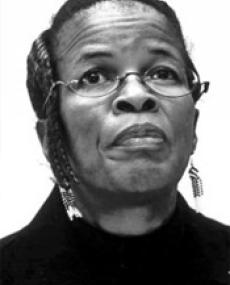
Thenjiwe Mtintso, was born on 7 November 1950 in Soweto, Johannesburg where she also grew up. Her mother Hanna Mtintso was a domestic worker and her father Gana Makabeni was a trade unionist and a member of the African National Congress (ANC). Mtintso faced financial problems that compromised her education. Consequently, she was forced to leave school and work full-time in various factories to finance her part-time studies at secondary school and at the University of Fort-Hare.
At university she became a student activist in theSouth African Student Organisation (SASO)and Black Consciousness Movement (BCM). Her activism in student politics led to her expulsion from the University of Fort-Hare. As a result of her political activism, Mtintso was detained several times by the security police in the 1970s. She was also banned on numerous occasions because of her activities as a political organiser and a journalist of the Daily Dispatch Newspaper.
After she was arrested and brutally tortured by the security police, Mtintso was forced to go into exile in 1978, where she joined the ANC and uMkhonto we Sizwe (MK). She underwent military training and rose through the ranks to become a commander of MK. She was sent for further training in Cuba at the Fé del Valle School.
Mtintso remained in exile until 1992 when she returned to South Africa. She was appointed into the Transitional Executive Committee and thus became an active participant in the Convention for a Democratic South Africa (CODESA), negotiations. After the first democratic elections in April 1994, she became an ANC Member of Parliament. Later, she served as the first chairperson of the Commission of Gender Equality in 1997, and as chairperson of the board of Gender Links.
A year later she was elected as the Deputy Secretary General of the ANC. Mtintso also served as a member of the Central Committee of the South African Communist Party (SACP). Meanwhile, she also enrolled for a Master of Arts (MA) degree at the University of the Witwatersrand in 1998. In 2007 she was appointed as South Africa’s Ambassador to Cuba and in 2010, she was appointed as South Africa’s Ambassador to Italy.